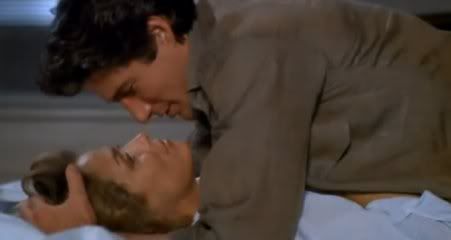Don't worry about anything. I can take care of you. I know what you want.

I couldn't tell you why, but Richard Gere is one of those actors whose early work I've never really felt the need to check out until now. Apart from Days of Heaven, which I had to see since it was directed by Terrence Malick and my cinephile membership card would have been taken away otherwise, none of it seemed all that compelling. After taking in Breathless this week, though, I decided to give its elder sibling -- 1980's highly stylized American Gigolo -- a look. Besides, doing so allows me to add another Paul Schrader film to my list of conquests, and that's something I've been meaning to do for a while now.
On the commentary for Mishima, Schrader mentions that American Gigolo was the first film he directed where he paid close attention to how it looked and that definitely shows in his choice of cinematographer John Bailey (who, incidentally, just celebrated his 69th birthday and is still very much in demand in Hollywood). And Schrader also picked one of the most photogenic actors around in Gere, who very much looks the part of a high-priced male prostitute who knows just how high-maintenance he is. In fact, Schrader delights so much in simply following him around for the first half hour of the film and observing him in action with his various procurers and clients that it's a shame when the plot has to kick in with the suspicious murder that Gere comes to believe he's being framed for. After that he has a hard-ass homicide detective (Hector Elizondo) on his case, his main employer (Nina Van Pallandt) grows wary of using him, and the politician's wife he's started seeing (Lauren Hutton) can't provide him with an alibi because the scandal would ruin her husband's career. That's a tough spot for anyone to be in, no matter how good they look in an Armani suit.
There are a number of facets of the film that will forever make it a time capsule of the era in which it was made. First and foremost is Giorgio Moroder's synth-driven soundtrack, which takes the opening title song "Call Me" by Blondie (which Moroder composed; Debbie Harry provided the lyrics) and turns it into a motif that is interwoven into the underscore. Then there is the gay disco that Gere enters in search of Bill Duke, the guy who set him up with the rough trick that got him in trouble in the first place. Not that such places don't exist today, but one rarely sees them populated by queers dressed as cowboys, construction workers, bikers and cops -- unless, of course, the club is having a Village People theme night. I doubt that happens too often.